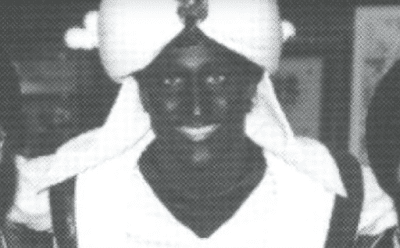Stephen Roney's Blog, page 285
September 27, 2019
The UK Supreme Court Recalls Parliament
 Britain's last "man on a white horse."
Britain's last "man on a white horse." I get the idea that the British have made a terrible hash of their constitution. I find it disturbing, in the wake of its recent decision against Boris Johnson, to hear people refer to the UK Supreme Court, as “the highest court in the land.”
Until now, under the Westminster system, the highest court in the land was Parliament itself. The people’s will could not be overruled.
The danger, as was fully understood, was that effective control of government could be hijacked by an unelected elite pursuing its own class interests. This is increasingly happening in the US and Canada. Once it was large landowners; now it is judges.
This judgement now looks like a lunge for absolute power in the UK as well. The point seems to have been to put down a marker: the judges get the final say on any law. In this judgement, they asserted their primacy over both the executive—the monarchy—and the legislature, who choose the prime minister as their representative.
Or they used to. Under the true Westminster system, the prime minister and cabinet serve only so long as they have majority support in parliament; and that support can be withdrawn at any time.
Unfortunately, this too has been recently compromised. Leaving a dangerous power vacuum for the judiciary to rush in and fill, like the proverbial man on a white horse.
It has become a deepening quagmire. Perhaps it can be fixed if and when Britain Is permitted to go to the polls again. But what if a new government passes legislation to abolish the Supreme Court, and the Supreme Court then declares it illegal?
Perhaps Canada has a better chance to escape this descent into oligarchy; although it is already further along the downward spiral. The Canadian Constitution is canny enough to include a “notwithstanding” clause, allowing the legislature to overrule the courts if necessary.
We need a leader with the will to use it.
'Od's Blog: Catholic and Clear Grit comments on the passing parade.
Published on September 27, 2019 16:24
September 25, 2019
Fade to Black
 Cultural appropriation.
Cultural appropriation.I have been suspending judgement on whether the blackface scandal was going to sink Trudeau. A lot of commentators have been, it seems. Probably for the same reason I was: if the SNC-Lavalin scandal could not sink him, could anything? It looked as though his support might be invulnerable to scandal. Some politicians are like that: Bill Clinton, Doug Ford, Donald Trump.
But tracking the reaction since, I think he is sunk.
Not because the multiplying incidents shows he is a racist. They don’t; and as I have noted, it is arbitrary to see anything racist about blackface. And not because they show he is a hypocrite; although they do, and this does hurt him. Because they show he is a fool.
Not a clown. Donald Trump or Rob Ford or Ralph Klein are clowns. People like clowns. A clown makes us laugh.
A fool doesn't know he is funny. He is not in on the joke.
People do not like fools, especially self-important fools. Other examples: Dan Quayle; Kim Campbell; Joe Clark.
Fools are tiresome.
Trudeau is now being mocked by foreign commentators. I just typed "blackface" into Google images. The first five results were Justin Trudeau. Canadians care a lot how they are perceived abroad. My NDP friend who cannot vote for Singh was evaluating all the candidates on this one question: “Can you imagine them representing Canada abroad?”
Once you become a figure of fun, you're done.
'Od's Blog: Catholic and Clear Grit comments on the passing parade.
Published on September 25, 2019 13:29
September 24, 2019
Luke 16

The Parable of the Dishonest Steward
16 Jesus told his disciples: “There was a rich man whose manager was accused of wasting his possessions. 2 So he called him in and asked him, ‘What is this I hear about you? Give an account of your management, because you cannot be manager any longer.’
3 “The manager said to himself, ‘What shall I do now? My master is taking away my job. I’m not strong enough to dig, and I’m ashamed to beg— 4 I know what I’ll do so that, when I lose my job here, people will welcome me into their houses.’
5 “So he called in each one of his master’s debtors. He asked the first, ‘How much do you owe my master?’
6 “‘Nine hundred gallons[a] of olive oil,’ he replied.
“The manager told him, ‘Take your bill, sit down quickly, and make it four hundred and fifty.’
7 “Then he asked the second, ‘And how much do you owe?’
“‘A thousand bushels[b] of wheat,’ he replied.
“He told him, ‘Take your bill and make it eight hundred.’
8 “The master commended the dishonest manager because he had acted shrewdly. For the people of this world are more shrewd in dealing with their own kind than are the people of the light. 9 I tell you, use worldly wealth to gain friends for yourselves, so that when it is gone, you will be welcomed into eternal dwellings.
10 “Whoever can be trusted with very little can also be trusted with much, and whoever is dishonest with very little will also be dishonest with much. 11 So if you have not been trustworthy in handling worldly wealth, who will trust you with true riches? 12 And if you have not been trustworthy with someone else’s property, who will give you property of your own?
13 “No one can serve two masters. Either you will hate the one and love the other, or you will be devoted to the one and despise the other. You cannot serve both God and money.”
14 The Pharisees, who loved money, heard all this and were sneering at Jesus. 15 He said to them, “You are the ones who justify yourselves in the eyes of others, but God knows your hearts. What people value highly is detestable in God’s sight. (WEB)
The Gospel of Luke is hostile to money. Matthew gives the first Beatitude as “Blessed are the poor in spirit,” Luke says, “Blessed are the poor.”
You might suppose then that the Gospel of Luke is hostile to capitalism.
But this parable, which only Luke includes, suggests the opposite.
Marxists imagine that business in general is a matter of cheating and exploitation. Luke has no such illusions. In any free exchange—in, that is, a free market—any deal goes through if and only if all parties believe they benefit from it.
That is illustrated here. The manager benefits by making friends he will need when he loses his job. The debtors win by having their debts reduced. And, no, the manager is not cheating his master. He does not conceal his final dealings, and his master praises him for them. Just like a business owner offering his customers a sale price or a loss leader or a free gift, he is building goodwill among his customers. All businesses rely for success on developing the trust of customers that they will be given a good deal.
So in business everybody wins.
And this is why, if you happen to know a successful businessman, you will find that they are generally the first to help anyone in need.
In making the manager dishonest, Jesus is making the point that all this is going to happen even if everyone involved is acting only out of pure self-interest, rather than morality or love of their fellow man. This is exactly the point Adam Smith made: in a free market, if everyone pursues self-interest, the “invisible hand of God” will work to the general benefit.
In other words, Luke’s gospel actually endorses the free market, which Marxists prefer to call “capitalism.” “Capitalism” prevents the excessive love of money.
In the parable, of course, the rich man is God, and we are the dishonest manager. Any money, any material wealth we happen to have, is not ours; it is God’s, and we have it on loan. We are therefore obliged to deal generously with our debtors. We will be asked for an accounting on our death.
'Od's Blog: Catholic and Clear Grit comments on the passing parade.
Published on September 24, 2019 12:59
September 21, 2019
Send in the Clowns
I had a little epiphany recently while rummaging through old files.
I found there a weathered note from an old friend from grad school, dating to back in the 1980s. She was expressing her delight that I had tried to get back in touch; but at the same time warning me that she was “fragile,” and urging that we not discuss either politics or religion.
I think I may have uncovered here a very early example of the attitude of censorship that has now overtaken the left. This young woman was a canary in the mine—in the academy from which this has all sprung.
At the time, I recall, I found it odd, that she wanted to avoid all talk of religion. Since our graduate field had been religion. And we were of the same religion.
I took it then as expressing some very personal problem; and my friend did indeed seem “fragile,” as she said, always complaining of a bad back, and of a history of depression.
Because it is being expressed through political action, people tend to see the growing intolerance on the left as political. Jordan Peterson calls it “cultural Marxism.”
But perhaps my friend’s case indicates that the first cause is not political, but psychological and spiritual. Marx just offers a convenient political analogue.
And it may be a bit callous to scoff at such fragile people as “snowflakes.” They may be responding to some real spiritual anguish with their talk of “triggers.”
Better perhaps to blame not Marx, but Freud. What we are seeing now may be less cultural Marxism than political Freudianism.
Freud’s thesis, in an A-cup, was that mental illness was caused by repressing natural urges. “Civilization and its discontents” were the problem. Accordingly, if someone like my friend went to a psychiatrist or psychologist with emotional problems, perhaps originally caused by the torment of an aching back, the advice they would be given would be to throw off their “hangups” about conventional morality and start thinking seriously about having sex.
My friend was into that.
And rather than helping, this may well have led sufferers, especially those who like my friend had religious sentiments, into a downward spiral. Increasingly tormented by the voice of conscience, it came to the point that they, like she, could no longer bear any mention of religion.
It all makes you wonder.
But then, why politics too? She could not tolerate politics. And why has this mental illness now spread from individuals like my friend to the political left in general, seemingly a majority or almost a majority of the population?
 Carl Rogers.
Carl Rogers.That may be thanks to Carl Rogers. Rogers was the dominant voice in American psychiatry during the 1960s. He followed Freud, Jung, and the rest of the field in holding that the solution to mental illness was to throw off the shackles of conventional morality and the demands of being civilized and satisfy your natural passions. But he expanded the possible clientele, arguing that we are all suffering from these oppressive influences: we would all be healthier and happier if we adopted psychiatry as our religion and reached our full “human potential,” by which he meant, getting whatever we wanted. This was the meaning of life: “Behavior is basically the goal-directed attempt of the organism to satisfy its needs as experienced.”
Surely this, perhaps best immortalized by Disney’s Baloo the Bear, was the essential doctrine of the Sixties. “Let it all hang out.” One was supposed to be ashamed only of having “hangups,” meaning moral scruples. The term itself comes from Kerouac; but Kerouac meant something very different. He meant simply things that hold our attention, as a hobby might. Nothing negative about it.
And note the Sixties slogan, “if it feels good, do it.” “Follow your bliss.” “Do your own thing.” “Don’t be judgmental.”
The premise, then, was that the natural man, man in the state of nature, our natural urges, were good; the restraints placed on them by morality, culture, and civilization, were bad. Morality was bad. Civilization was bad. We had to get “back to nature,” “back to the garden,” “back to the land.” Witness too the whole ecology thing.
This is awful advice, if conventional morality and civilization happen to be anything other than ignorant prejudice. And that is not a possible hypothesis. If ignorant prejudice, given original blessedness, where did they come from? If all our natural instincts are right and good how did sin and error, these hurtful demands of civilization, ever come into the world? It could not have come from humans. It must have been some outside agency, then: alien mind control?
Then too, if all preceding generations got it wrong, and we in the Sixties were the first to realize this, we must believe that all our ancestors were idiots.
Logically not credible, then; but fatally appealing. Natural urges are naturally seductive.
But because it was logical nonsense, this fact was bound to become obvious over time. The wheels were going to come off this handcart. What then?
Folks in the Sixties and in the human potential movement were not generally reckless enough to believe that you could always ignore morality in favour of satisfying your natural urges. Manson family aside, most hippies stopped short of murder. Or theft, despite feints like Abby Hoffman’s “Steal This Book,” and talk of “liberating” whatever you wanted. Theft might be good, but unlike most sex, there was the practical risk of being arrested.
This is where Marxism comes in. One could through it at least be working towards a solution: Marx’s communist cloud cuckoo land, in which everyone could just have whatever they wanted.
In the meantime, more immediately, the human potential revolution concentrated on the sexual urges. Sexual sins, we were assured, were “crimes with no victims.” So that any such laws or prohibitions were simply oppressive, and easily abolished.
It was actually obvious form the start that this was not so: abortion. It was never that there were no victims; it was that the victims were defenseless.
And over time, it has become apparent that there are lots more victims too; our ancestors were indeed not just prejudiced self-hating fools. The sexual revolution has been devastating for family life, which means devastating for children. But again, children are voiceless and vulnerable members of society.
Less obviously, it has been devastating for everyone else.
Gradually, the toll has mounted. But that is only the half of it. At the same time, the voice of conscience has become louder and louder, making those who bought in to the doctrine increasingly emotionally “fragile,” terrified of their own shadows, terrified of certain matters being raised.
As we now see all around us.
In Tom Wolfe’s book The Electric Kool-Aid Acid Test, chronicling the beginnings of the hippie movement in Ken Kesey’s Merry Pranksters and their van trip across America to meet Timothy Leary, he already reports the case of a female passenger who goes suddenly psychotic over thoughts of a child she had abandoned or aborted as a requirement of their free-love lifestyle. She is herself abandoned at the next stop. The van rolls on.
 Kesey's van.
Kesey's van.Along with the need for censorship has grown the need to find scapegoats. The original and classic move in this regard was feminism: blame everything bad on men. Women’s urges were still all good: but men were all depraved and their urges immoral. Then whites have become scapegoats, for the obvious reason that they really did play a disproportionate role in forming our “oppressive” culture and civilization. So they are a fifth column that must be suppressed or eliminated. And, of course, the Catholic Church, the right, any memorials to shared history, anyone who will not openly endorse this or that given sexual perversion, anyone who retains the conventional faith in right and wrong.
Some on the right have taken recently to calling this all “clown world.” That is to give it too much credit. It is pathological and objectively evil. Perhaps the beginning of a return to civilizational health is to say so.
'Od's Blog: Catholic and Clear Grit comments on the passing parade.
Published on September 21, 2019 15:52
September 20, 2019
Tom, We Hardly Knew Ye
 Tom Mulcair
Tom MulcairA friend who has voted NDP his entire life says he cannot vote this time for Jagmeet Singh.
Perhaps this gives some insight into why the NDP’s support has sagged.
My friend feels that Singh lacks gravitas. “I can't imagine him representing Canada abroad.”
He did not say how he would vote; he did say Scheer and May both also lacked gravitas. Of course, I feel the same way about Justin Trudeau, only much more so. He did not mention Trudeau, but surely because in this case the matter was obvious. I got the impression he was just going to stay home.
Then he mentioned Tom Mulcair—how wrong the NDP was to vote him out.
I think that may be important. Singh is being compared to Mulcair as much as to Trudeau. Mulcair had gravitas. Next to him, Singh looks and sounds like a student body president.
I think this is a fatal error indulged in by both the Tories and the NDP. Seeing Trudeau’s success, they did the boneheaded typical politico thing and voted in new leaders who were as similar as possible to Trudeau; young, good-looking, inexperienced. Giving the voters no alternative once they saw the problem with youth, inexperience, and lack of seriousness. (May may not have youth, but she surely lacks gravitas.) Mulcair could have torn up this field and left only embers.
On top of that, there is a festering sense that Mulcair was treated badly by the party. I think my friend resented that as a Quebecker—and NDP support in Quebec has collapsed.
If the NDP is decimated this election, Singh will almost certainly be obliged to resign. If that happens, intelligent NDPers not fond of extinction of their species should organize a Draft Mulcair movement as soon as possible.
'Od's Blog: Catholic and Clear Grit comments on the passing parade.
Published on September 20, 2019 07:04



